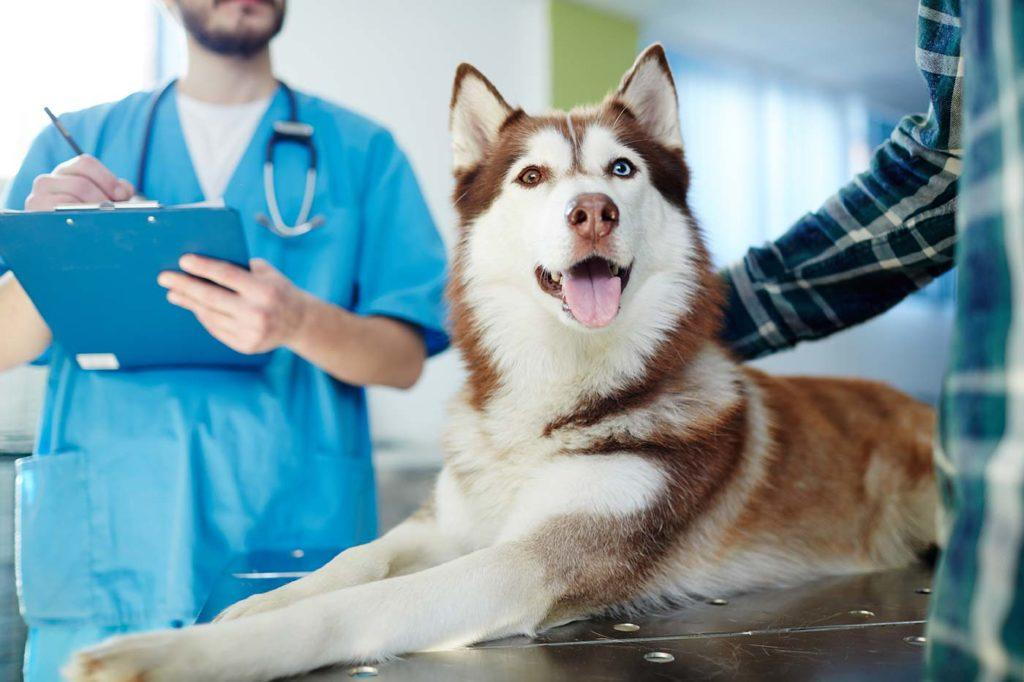Questions to ask before your pet surgery

- posted: Dec. 21, 2023
Questions to Ask Before Your Pet’s Surgery
You may have several questions and concerns when your veterinarian recommends a surgical procedure for your pet. Being informed about surgery puts your mind at ease while your veterinarian provides your pet with the best care possible. The Animal Hospital of Lynnwood in Lynnwood, WA, is here to share some questions you should ask before your pet’s surgery.
What Is the Surgical Procedure, and Why Is It Needed?
Knowing the kind of surgical procedure your pet requires allows you to understand its recovery process. Your veterinarian may recommend potentially elective surgery during a pet exam based on your pet’s lifestyle, such as spaying and neutering, and mass removal. Other surgical procedures are necessary to prevent potentially life-threatening conditions in your pet. These procedures may include the removal of malignant tumors, the removal of obstructions in the intestines, and surgery to repair fractured or broken bones.
What Type of Anesthesia Will Be Used?
There are some anesthesia options veterinarians may select from based on factors like your pet's age, health status, type of surgery, and more. You should ask your veterinarian about the anesthesia your pet will receive during surgery to understand how your pet will be treated and monitored. The type of anesthesia used can also determine how long your pet may need to stay at the animal hospital.
Are There Any Preparation or Aftercare Steps for Me?
Getting guidance upfront on instructions like withholding food at a specific time or administering medication after surgery eliminates surprises. Knowing the steps you need to take to prepare your pet for surgery also allows you to get items like an e-collar, set up a confined recovery space at home, take time off work to monitor your pet’s recovery, and coming in for recommended rechecks with the veterinarian.
How Long Will My Pet Be at the Animal Hospital?
Understanding the expected surgery length and time needed for your veterinarian to monitor your pet gives you insight into how long to expect your pet to be away. Knowing this time frame allows you to prepare your home and get items your pet may need for post-op care.
What Symptoms Merit an Emergency Call?
Knowing possible side effects and symptoms your pet may experience after surgery allows you to determine when a call to your veterinarian is necessary. You should contact your veterinarian immediately if your pet shows symptoms that are not typical side effects of its surgery.
Prepare for Your Pet’s Surgery by Calling the Animal Hospital of Lynnwood
Knowing what to expect from your pet’s surgery is vital for ensuring your pet’s recovery goes as smoothly as possible, so contact the Animal Hospital of Lynnwood in Lynnwood, WA, to learn more about pet surgery. Call us if you have additional questions about your pet’s surgery at (425) 771-6300.

- posted: Dec. 21, 2023
Questions to Ask Before Your Pet’s Surgery
You may have several questions and concerns when your veterinarian recommends a surgical procedure for your pet. Being informed about surgery puts your mind at ease while your veterinarian provides your pet with the best care possible. The Animal Hospital of Lynnwood in Lynnwood, WA, is here to share some questions you should ask before your pet’s surgery.
What Is the Surgical Procedure, and Why Is It Needed?
Knowing the kind of surgical procedure your pet requires allows you to understand its recovery process. Your veterinarian may recommend potentially elective surgery during a pet exam based on your pet’s lifestyle, such as spaying and neutering, and mass removal. Other surgical procedures are necessary to prevent potentially life-threatening conditions in your pet. These procedures may include the removal of malignant tumors, the removal of obstructions in the intestines, and surgery to repair fractured or broken bones.
What Type of Anesthesia Will Be Used?
There are some anesthesia options veterinarians may select from based on factors like your pet's age, health status, type of surgery, and more. You should ask your veterinarian about the anesthesia your pet will receive during surgery to understand how your pet will be treated and monitored. The type of anesthesia used can also determine how long your pet may need to stay at the animal hospital.
Are There Any Preparation or Aftercare Steps for Me?
Getting guidance upfront on instructions like withholding food at a specific time or administering medication after surgery eliminates surprises. Knowing the steps you need to take to prepare your pet for surgery also allows you to get items like an e-collar, set up a confined recovery space at home, take time off work to monitor your pet’s recovery, and coming in for recommended rechecks with the veterinarian.
How Long Will My Pet Be at the Animal Hospital?
Understanding the expected surgery length and time needed for your veterinarian to monitor your pet gives you insight into how long to expect your pet to be away. Knowing this time frame allows you to prepare your home and get items your pet may need for post-op care.
What Symptoms Merit an Emergency Call?
Knowing possible side effects and symptoms your pet may experience after surgery allows you to determine when a call to your veterinarian is necessary. You should contact your veterinarian immediately if your pet shows symptoms that are not typical side effects of its surgery.
Prepare for Your Pet’s Surgery by Calling the Animal Hospital of Lynnwood
Knowing what to expect from your pet’s surgery is vital for ensuring your pet’s recovery goes as smoothly as possible, so contact the Animal Hospital of Lynnwood in Lynnwood, WA, to learn more about pet surgery. Call us if you have additional questions about your pet’s surgery at (425) 771-6300.
Schedule your visit here
Sign-up using the form or call us at (425) 771-6300 to make an appointment
Location
Find us on the map
Lynnwood Animal Hospital
19503 56th Ave W
Lynnwood, WA 98036
